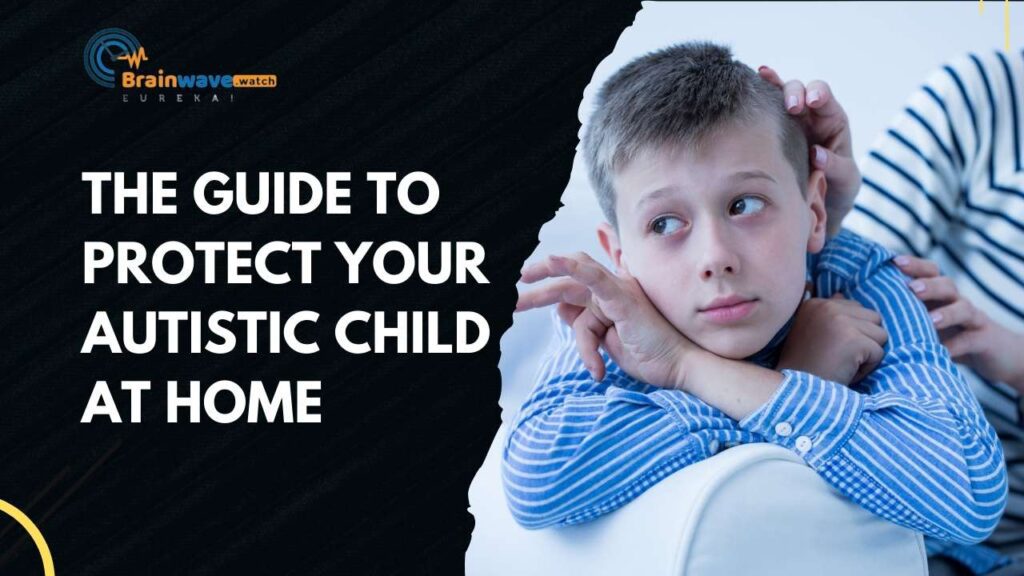Given the challenges associated with ASD, dating someone with autism can be particularly difficult. However, it is important to understand that people with autism are capable of forming meaningful relationships and can benefit from the support of their partners.
Communication is key in any relationship, but it can be especially challenging when one partner has autism. People with autism may have difficulty interpreting nonverbal cues such as facial expressions or tone of voice, which can lead to misunderstandings or conflict.
Additionally, individuals with autism may struggle to express themselves verbally or may have difficulty understanding abstract language. As a result, it is important for couples to develop effective communication strategies that work for both partners.
Another challenge that couples may face when one partner has autism is creating a safe and supportive environment. People with autism often have sensory sensitivities and may become overwhelmed by certain stimuli such as loud noises or bright lights.
This can make everyday activities such as going to a restaurant or attending a social event difficult for individuals with autism. As a partner, it is important to understand your girlfriend’s sensory sensitivities and work together to create an environment where she feels comfortable and supported.
In this blog post, we will explore effective communication strategies for couples with autism, ways to create a safe and supportive environment for your girlfriend with autism, and how to understand and manage sensory sensitivities in your relationship. By learning more about these topics, you can better support your girlfriend with autism and strengthen your relationship together.
Communication Strategies
 Communication is a key component of any relationship, but it can be particularly challenging for couples where one partner has autism. To effectively communicate with your girlfriend with autism, it’s important to understand the communication differences that may exist and to develop strategies that work for both of you.
Communication is a key component of any relationship, but it can be particularly challenging for couples where one partner has autism. To effectively communicate with your girlfriend with autism, it’s important to understand the communication differences that may exist and to develop strategies that work for both of you.
1. Communication differences
Individuals with autism often have difficulty with social communication, which can make it challenging to express their thoughts and emotions in a way that others understand. They may struggle with interpreting social cues and body language or have difficulty initiating or maintaining conversations.
To overcome these challenges, it’s important to be patient and understanding when communicating with your girlfriend. Give her time to process information and express herself in her own way. Avoid using sarcasm or figurative language, as these can be confusing for someone with autism.
It can also be helpful to use clear and concise language when speaking with your girlfriend. Avoid using abstract concepts or idioms, as these can be difficult for individuals with autism to understand.
2. Non-verbal communication
Non-verbal communication plays an important role in all relationships, but it can be especially important when one partner has autism. Individuals with autism may struggle with interpreting non-verbal cues such as facial expressions, tone of voice, and body language.
To improve non-verbal communication in your relationship, try to use clear and consistent signals when expressing yourself. For example, if you’re feeling happy or excited, try smiling or using an upbeat tone of voice. If you’re feeling sad or upset, try using a more subdued tone of voice or facial expression.
It’s also important to pay attention to your girlfriend’s non-verbal cues and respond accordingly. If she seems uncomfortable or anxious in a certain situation, try to adjust the environment or activity so that she feels more at ease.
3. Social communication
Social communication can be particularly challenging for individuals with autism. They may struggle with initiating conversations or making small talk, which can make social situations feel awkward or uncomfortable.
To help your girlfriend navigate social situations more easily, try to provide her with some guidance beforehand. Let her know what kind of event she’ll be attending and who will be there. Provide some conversation starters that she can use if she feels stuck.
It’s also important to give your girlfriend space if she needs it during social situations. She may need breaks from the noise and stimulation of a crowded room in order to recharge her batteries.
Read also: 15 Things To Know About Dating & Autism
Creating a Safe and Supportive Environment
 Dating someone with autism can be challenging, but creating a safe and supportive environment for your girlfriend with autism can make all the difference. When you understand the unique needs of your partner, you can work together to create a relationship that is fulfilling and supportive. In this section, we will discuss some strategies for creating a safe and supportive environment for your girlfriend with autism.
Dating someone with autism can be challenging, but creating a safe and supportive environment for your girlfriend with autism can make all the difference. When you understand the unique needs of your partner, you can work together to create a relationship that is fulfilling and supportive. In this section, we will discuss some strategies for creating a safe and supportive environment for your girlfriend with autism.
1. Sensory Sensitivities
Individuals with autism often have sensory sensitivities that can make certain environments overwhelming or uncomfortable. Common sensory sensitivities include sensitivity to light, sound, touch, taste, and smell. As a partner of someone with autism, it is important to understand these sensitivities and work to create a sensory-friendly environment.
One way to create a sensory-friendly environment is to reduce unnecessary stimuli. For example, turning off the television or dimming the lights may help reduce sensory overload for your girlfriend. You may also want to consider using noise-canceling headphones or earplugs in noisy environments.
Another strategy is to provide your girlfriend with items that can help her regulate her senses. This may include weighted blankets or vests, fidget toys, or chewable jewelry. These items can help provide comfort and regulate sensory input.
2. Establishing Routines
Routines are an important part of daily life for individuals with autism. They provide structure and predictability which can help reduce anxiety and stress. As a partner of someone with autism, it is important to establish routines in your relationship.
You may want to consider creating a schedule together that outlines daily activities such as meals, exercise, work/school schedules, leisure time activities, etc. Having a routine helps both partners know what they need to do each day which reduces confusion and stress.
It’s also important to be flexible when it comes to routines as unexpected events happen in life from time to time which might disrupt the routine you’ve established together. Being flexible means adjusting things without getting upset because something didn’t go according to plan.
3. Managing Stress and Anxiety
Stress and anxiety are common triggers for individuals with autism which can lead them to feel overwhelmed or agitated more easily than others might feel in similar situations. As their partner, it’s important that you learn how best to support them when they’re feeling stressed or anxious.
Firstly try not to take things too seriously when they’re having an episode of anxiety or stress as sometimes laughter really is the best medicine! Secondly, try helping them by asking what they need from you during these times whether it’s just listening quietly while they talk through their feelings or helping them find solutions on how they could manage their emotions better next time around.
Finally, remember that everyone reacts differently when dealing with anxiety so don’t take it personally if they get angry at you – this isn’t about you but instead about their own internal struggles.
Read also: Autism and You: How to cope with the challenges
Sensory Sensitivities
Individuals with autism often experience sensory sensitivities, which can impact their daily lives and relationships. Sensory sensitivities refer to an individual’s heightened or reduced response to sensory stimuli such as sound, touch, taste, smell, and visual input. These sensitivities can vary from person to person and can be overwhelming or uncomfortable for individuals with autism.
1. Types of sensory sensitivities
Sensory processing disorder (SPD) is a condition in which the brain has difficulty receiving and responding to information that comes in through the senses. There are three types of SPD: hypersensitivity (over-responsiveness), hyposensitivity (under-responsiveness), and sensory seeking (craving). Hypersensitivity refers to an individual’s overreaction or discomfort to certain stimuli such as loud noises or bright lights. Hyposensitivity refers to an individual’s lack of response or awareness of certain stimuli such as pain or temperature changes. Sensory seeking refers to an individual’s desire for certain types of stimulation such as spinning or jumping.
Common types of sensory sensitivities experienced by individuals with autism include:
- Auditory sensitivity: sensitivity to loud noises, specific pitches, or background noise
- Tactile sensitivity: discomfort with certain textures or clothing fabrics
- Visual sensitivity: discomfort with bright lights, fluorescent lighting, or patterns
- Smell sensitivity: discomfort with strong smells such as perfumes or cleaning products
- Taste sensitivity: aversion to certain tastes or textures of food
Impact of sensory sensitivities on relationships
Sensory sensitivities can have a significant impact on relationships for individuals with autism. For example, if your girlfriend has auditory sensitivity, she may become overwhelmed in noisy environments like crowded restaurants or concerts. This could lead to her feeling anxious and wanting to leave the situation early. Similarly, if your girlfriend has tactile sensitivity, she may not enjoy physical touch like hugs or hand-holding.
It is important to understand how your girlfriend’s sensory sensitivities affect her so that you can support her in a way that works for both of you. This might mean avoiding certain situations that trigger her sensitivities or finding ways to modify the environment so that it is more comfortable for her.
Read also: Autism And Sensory Issues: The Connection
Tips for supporting your girlfriend with sensory sensitivities
Here are some tips for supporting your girlfriend with sensory sensitivities:
- Ask her what triggers her sensitivities and how they make her feel.
- Modify the environment when possible – turn down the volume on music or dim the lights.
- Plan activities together that avoid triggering her sensitivities.
- Be patient and understanding when she needs breaks from overwhelming situations.
- Seek professional help if necessary – occupational therapists can provide strategies for managing sensory issues.
By understanding your girlfriend’s sensory sensitivities and providing support where needed, you can create a safe and comfortable environment for both of you in your relationship.
Supporting Your Girlfriend with Autism
Having a girlfriend with autism can come with its own set of challenges, but it’s important to remember that she is still the same person you fell in love with. Empathy and understanding are crucial components of any relationship, but they are especially important when dating someone with autism.
1. Empathy and understanding
Empathy involves putting yourself in your girlfriend’s shoes and trying to understand her perspective. This can be difficult when you don’t share the same experiences or thought processes as your partner, but it is essential for building a strong relationship. One way to develop empathy is by actively listening to your girlfriend without judgment. Try to understand how she sees the world and what her needs are.
Understanding also means recognizing that autism affects everyone differently. Just because you know one person with autism doesn’t mean you know how all people with autism think or behave. It’s important to take the time to learn about your girlfriend’s specific needs and preferences.
2. Advocating for your girlfriend
Advocating for your girlfriend means being her ally and helping her navigate situations where she may struggle due to her autism. This could involve advocating for accommodations in school or work settings, speaking up when others misunderstand or judge her behavior, or simply making sure she feels comfortable in social situations.
It’s important to remember that advocating for your girlfriend does not mean speaking for her or taking control of her life. Instead, it means supporting her in making decisions that are right for her while providing guidance and assistance when needed.
3. Building a support network
Building a support network is essential for anyone, but it can be especially helpful when dating someone with autism. A strong support network can provide emotional support, practical advice, and resources for both you and your girlfriend.
One way to build a support network is by connecting with other couples who have experienced navigating relationships where one partner has autism. Online forums and local support groups can be great resources for finding other people who understand what you’re going through.
You can also help build a support network by encouraging your girlfriend to connect with others who share similar interests or experiences. This could involve joining clubs or organizations related to her hobbies or attending events specifically geared toward people on the autism spectrum.
Read also: How Does Autism Affect the Development of a Child?
Conclusion
In conclusion, dating someone with autism can present unique challenges, but with understanding and support, it can also be a fulfilling and loving relationship. Effective communication strategies such as clear and direct language, active listening, and using visual aids can improve communication between partners with autism. Creating a safe and supportive environment that takes into account sensory sensitivities can also help your girlfriend with autism feel more comfortable in the relationship. It is important to remember that every person with autism is different, so it is essential to communicate openly and work together to find what works best for both of you. Seeking professional support such as therapy or counseling can also provide valuable tools and resources for navigating the complexities of a relationship with someone with autism. With patience, empathy, and an open mind, you can build a strong and loving connection with your girlfriend with autism.







